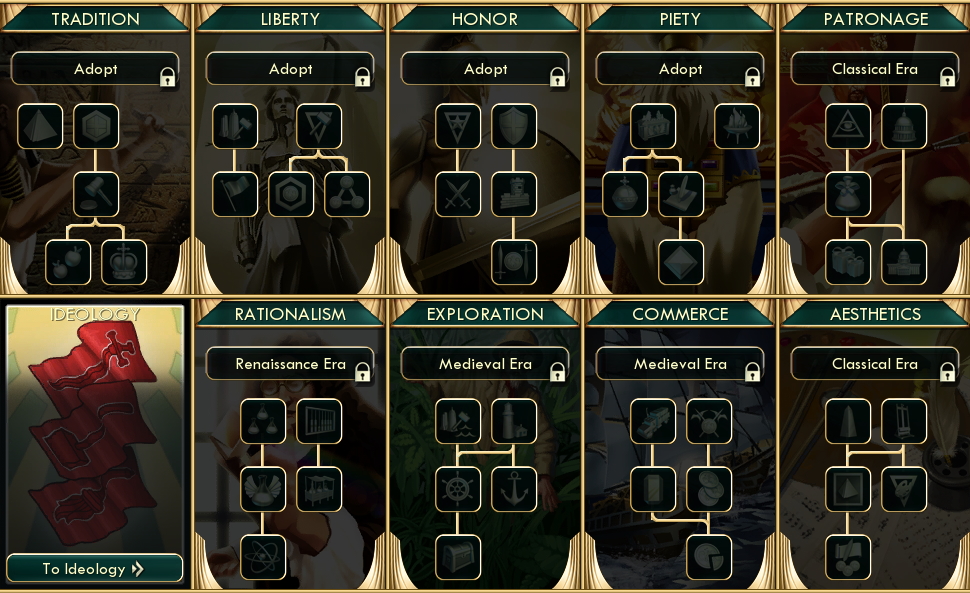
The Archaelogy tech gives a civ the ability to produce Archaeologists, a specialized Worker unit that can establish Archaeological Digs at Antiquity Sites. New elements, such as the late-game Hotel building, help push that growth even further. The more Great Works your civ possesses, the more rapidly Tourism builds. The Louvre, for example, can be filled with priceless works of art thanks to its multiple slots. Certain buildings and Wonders are now outfitted with Artist/Writer/Musician-specific slots. Each of the three is capable of producing a Great Work in their given field, though these also need to be given a home. Tourism is the culture player’s principle “weapon,” while the existing Civ V culture rules are reimagined now as your “defense.” You no longer have a general-purpose Great Artist in Civ V. Instead, you’ve got Great Artists, Great Writers, and Great Musicians. The top prize is a 100 percent boost to the new Tourism stat that lasts for 20 turns this can make a huge difference in the endgame if you’re shooting to win a cultural victory. It’s a bit of a race here to enjoy the benefits, as the three civs that lend the most production to the project win gold, silver, and bronze rewards. The Poles will obviously vote against the motion, but if you can bring enough votes to bear – either on your own or by striking deals with other civs using diplomatic channels – you can make it happen.Īlternatively, you might pass a resolution to hold an International Games, at which point all civs can direct individual city production toward the project.

You might, for example, want to smack down the uncultured religious nutjobs of Poland with a global trade embargo. The new World Congress is a sort of pre-United Nations organization of civs that sees a host civ putting various resolutions up to a vote, for both offensive and defensive purposes. Many of the new features in Brave New World shake things up in that regard. Those who prefer to lean more heavily in the direction of culture and diplomacy play more of a waiting game, clicking End Turn repeatedly while long-term projects fall into place.

Players who choose to vie for military or scientific dominance have a fairly robust experience already, as do faith-based players thanks to the advances introduced in the Gods & Kings expansion. The game digs deep into the 2010 release, with an eye toward making the pace of the action – primarily non-combat action – in the late-game more appealing. This is how our Civilization V: Brave New World preview played out. All without ever revisiting the bloody struggles that characterized its decades-long dispute with the Zulus. Other nations stood in awe of al-Mansur’s continuing achievements, and the Moroccans ascended to the role of global superpower in the early 21st century. Traditionally a closed and inward-focused people, the Moroccan Empire burst forth from its shell following the end of the war and quickly spread its message of freedom across the world. The Moroccan Empire became a culturally dominant force sometime in the 16th century, following a lengthy campaign that saw Ahman al-Mansur allying with the neighboring Assyrians to remove the ever-troublesome Zulu nation from the continent.


 0 kommentar(er)
0 kommentar(er)
